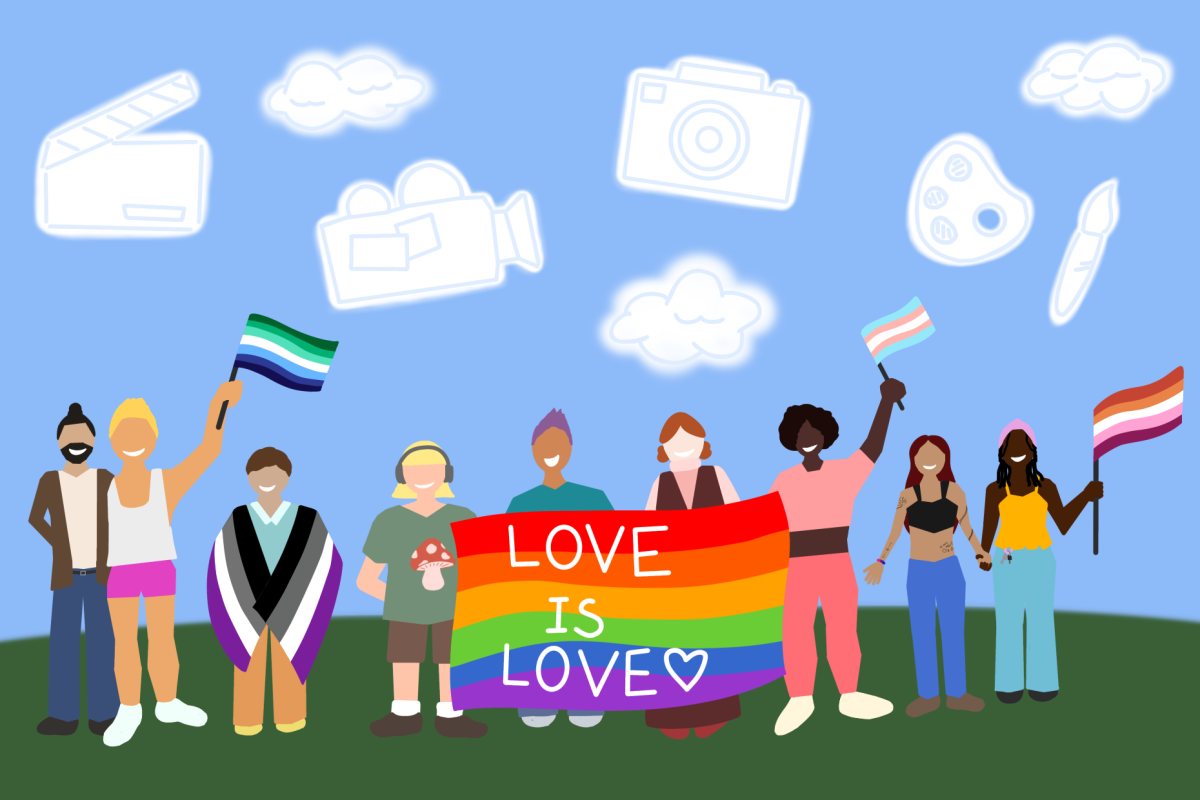From a ban on campus drag shows to a bill that could classify identifying as transgender on official documentation as a felony, Texas is facing a wave of anti-LGBTQ+ legislation.
The American Civil Liberties Union is tracking over 500 anti-LGBTQ+ bills across U.S. state legislative sessions. As of March 14, Texas’ session ranked first with 80 bills, more than twice the amount of runner-up state Missouri.
Here on UT’s campus, members of the LGBTQ+ community have expressed a range of emotions, from wanting to fight against legislation, to considering moving states. With the unpredictability of the next couple of years in Texas, radio-television-film sophomore Josh Grenier said he is leaning toward moving to New York or California.
“Seeing everything that’s been happening in Texas recently makes me really scared,” said Grenier, who is transgender.
Grenier said he’s worried about future job opportunities considering Iowa’s recent legislation legalizing discrimination against transgender people by removing gender identity protections from the state’s civil rights code.
“All those doors could potentially be closed,” Grenier said. “That scares me a lot.”
Regardless of the legal distress of Texas’ current situation, design junior Sharanya Gupta, who uses they/them pronouns, said they will do what is necessary to make sure that the LGBTQ+ community around them stays safe.
“Whether that means moving out of state, helping one another move … or fighting together to go to different advocacy groups and fight for our rights … I know that we will ultimately band together,” Gupta said.
Gupta’s work generally focuses on capturing sources of queer representation through photography, especially for drag shows hosted by co-ops in West Campus. Gupta’s move downtown spurred opportunities to photograph local events. They said this connected them to Austin’s LGBTQ+ community after being initially isolated in the suburbs.
“That was a very big moment of realizing the queer community that surrounded me in Austin, despite all of the challenges that we face legally in Texas,” Gupta said.
Working these events gave Gupta the opportunity to publicize spaces where members of the LGBTQ+ community feel comfortable being themselves, they said.
“I never got to see (these spaces) when I was younger,” Gupta said. “Being able to see … people enjoying their time, not only at UT, but in Austin, and feeling safe despite being in a completely red state is nice.”
Grenier’s work shares the same purpose of bringing the LGBTQ+ community forward through film. He said he aims to accurately represent the trans community and bring attention to current issues with legislation.
“(Representation in the media) almost normalizes different types of people,” Grenier said. “You get to learn about different people’s perspectives through what you consume every day.”
Assistant radio-television-film professor Curran Nault is fostering a space for students to produce that work. Nault, who uses he/they pronouns, created the LGBTQ+ curriculum within the radio-television-film department at UT and focuses on teaching LGBTQ+ media studies and culture. He said that providing these opportunities allows students to think critically about gender and sexuality.
“I’m now teaching things that were never taught directly to me,” Nault said. “That was really important to me to create those spaces that did not exist before.”
Along with educating others on LGBTQ+ culture and identity, Nault created OUTsider, a transmedia non-profit organization that provides a platform for LGBTQ+ artists to unite, exchange conversations and express their artistic identities. But the rhetoric behind recent legislation at the federal level suggests that availability of funding for art organizations like OUTsider is going to become more difficult, Nault said. Whether it be law or fear of donation to LGBTQ+ organizations, he said people are at a crossroads.
“There’s so much that needs assistance right now,” Nault said. “‘Where do we donate our money to?’”
Even with the uncertainty of funding,Nault said he feels confident in the ability for OUTsider to survive because of its nature as a grassroots and people-powered organization. He said he feels certain of the survival of the LGBTQ+ community through dire situations.
“LGBT people are resilient because they’ve had to be,” Nault said.
Gupta echoed that sentiment and shared that the possibility of potential “anti-queer bills” will not stop LGBTQ+ individuals from banding together and resisting.
“Ultimately, it’s our job and it’s our right to fight back and to still be expressive and be ourselves regardless of what bills get introduced,” Gupta said.
Through the pain and the hurt, Gupta said remaining steadfast in the struggle is fundamental for the freedom of LGBTQ+ community members.
“We can’t necessarily sob about things,” Gupta said. “We have to be advocates, we have to be expressive, we have to fight for our rights.”
































